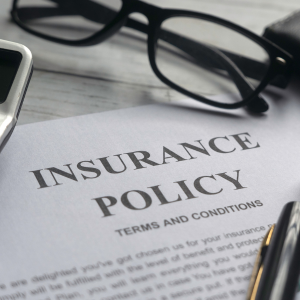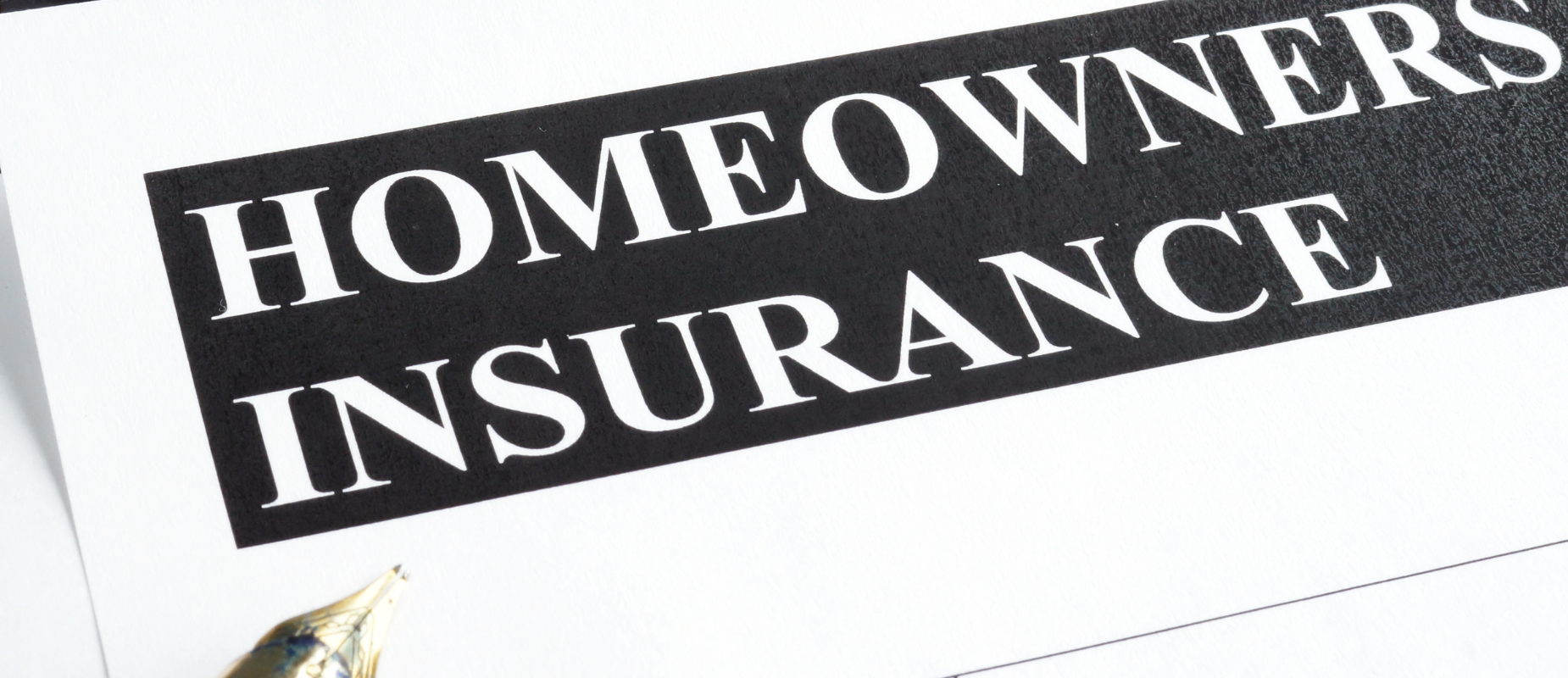
The Importance Of Home Insurance: Protecting Your Property And Investment In Texas
In Texas, homeowners must have adequate home insurance coverage. Without it, their property and investments are at risk.
Hurricanes, tornadoes, and wildfires are common natural disasters in Texas, and they can cause significant damage to homes. Without home insurance, homeowners may be unable to afford the expensive repairs or replacements required in these circumstances.
Furthermore, home insurance includes liability coverage if someone is injured on the property. This can help homeowners avoid expensive lawsuits and medical bills.
Home insurance is essential for protecting one’s property and investment in Texas.
Understanding The Basics Of Home Insurance Coverage

Protecting your home and belongings from unexpected disasters or accidents requires adequate home insurance coverage. In Texas, homeowners who do not have home insurance face serious consequences.
Without proper coverage, any damage or loss to your home or possessions will have to be paid for out of pocket, which may cause financial strain and hardship. Basic home insurance policies typically include coverage for natural disasters such as fires, storms, and floods, as well as theft and liability in the event that someone is injured on your property.
Understanding the specifics of your policy and ensuring you have enough coverage to protect your most valuable assets is critical.
How To Choose The Right Home Insurance Policy For Your Needs
When it comes to home insurance in Texas, it is critical to select the appropriate policy for your specific requirements. With the increasing frequency of natural disasters and property damage, having home insurance is critical for protecting your largest investment.
When choosing a policy, consider the coverage amounts, deductibles, and exclusions. Researching the reputation and financial stability of potential insurance providers is also critical.
Also, consider any additional coverage options that may be appropriate for your situation, such as flood or earthquake insurance. By carefully evaluating these factors and comparing quotes from various providers, you can find Texas’s best home insurance policy to protect your home and personal belongings.
Exploring Different Types Of Home Insurance Policies In Texas

Texas homeowners have many insurance options. The most common is homeowners insurance, which covers damage to homes and belongings caused by fire, theft, and natural disasters.
Dwelling insurance covers the structure of your home and any attached structures, such as a garage or deck. Home and apartment renters can purchase renters insurance, which covers personal belongings but not the building.
Selecting a home insurance policy in Texas requires careful consideration of needs and budget to ensure adequate coverage for potential risks and unforeseen events.
Key Factors To Consider When Insuring Your Property
Home insurance is crucial for protecting property in Texas and should not be overlooked. While many homeowners may consider it unnecessary, going without home insurance can be disastrous.
Uninsured homes are vulnerable to natural disasters such as hurricanes, tornadoes, and floods, and owners are responsible for the full cost of repairs and rebuilding. Accidents such as fires and thefts can also cause significant financial losses for those who do not have home insurance.
As a result, when considering insuring your Texas property, it is critical to carefully consider key factors such as coverage options, deductibles, and premiums to ensure adequate protection in the event of an unexpected event.
The Role Of Deductibles In Home Insurance And How They Impact Coverage

Home insurance is an important part of owning a home, especially in Texas, where natural disasters and weather that are hard to predict are common. However, a lot of people in the Lone Star State choose not to have home insurance, which means their homes might not be protected.
The role of deductibles is an important consideration when buying home insurance. A homeowner’s deductible is the amount of money they agree to pay out of pocket before their insurance starts to pay for things.
If you raise the deductible, your monthly premiums will be less, but you will have less coverage. Low deductibles, on the other hand, lead to higher premiums but better coverage.
It is very important for homeowners to carefully think about their budget and pick an insurance deductible that fits their needs while still protecting their homes adequately.
Evaluating The Cost Vs. Benefits Of Having Home Insurance
In Texas, having home insurance is crucial for protecting your property. While many homeowners believe they can save money by not purchasing home insurance, the consequences can far outweigh any potential cost savings.
Without insurance, you may face unaffordable repair or replacement costs in case of natural disasters or unexpected damage to your home. Furthermore, as the frequency and severity of weather events in Texas increase, the risk of going without home insurance rises.
However, you must carefully weigh the costs and benefits of having home insurance to ensure you receive the best coverage for your specific needs and budget.
Common Misconceptions About Home Insurance In Texas

Some Texas homeowners believe home insurance is unnecessary, particularly in low-risk areas. This is a common misconception since natural disasters and accidents can happen anywhere.
Another myth is that home insurance only covers storm and fire damage. In reality, it covers theft and personal liability.
Some tenants believe their landlord’s insurance covers rental property damage, but this is not always true. You need home insurance to protect your belongings and provide financial security in case of emergencies.
Finally, many homeowners believe home insurance is too expensive and unnecessary. However, affordable, customizable options are available for individual needs and budgets.
Texans must understand these myths and the risks of inadequate home insurance.
The Top Risks To Your Property That Are Covered By Home Insurance
Having adequate insurance coverage is essential for home ownership in Texas. Homeowners risk financial loss and homelessness without it.
Home insurance covers natural disasters as a major risk. Home damage from hurricanes, tornadoes, and severe storms is common in Texas.
Fire damage, which can destroy a home in minutes, is covered by home insurance. Uninsured homeowners worry about theft and vandalism.
Home insurance covers repairs and replacements after break-ins or vandalism. Protect your home and peace of mind with reliable home insurance.
What Happens If You Don’t Have Adequate Home Insurance Coverage?

Living in an unprotected home in Texas can have serious consequences if you do not have enough home insurance. You are exposed to financial ruin in a natural disaster, theft, or accident without adequate coverage.
While it may appear unnecessary, home insurance protects your most valuable asset. In Texas, where severe weather and other hazards are common, going without home insurance is risky and could result in costly repairs or even homelessness.
It is critical to consider the potential consequences and purchase a comprehensive home insurance policy to protect yourself and your family from unforeseen events that could destroy your home and financial security.
Exploring Additional Coverage Options For Your Texas Home
Getting the right insurance for your Texas home is vital for keeping it safe. Basic home insurance policies protect you somewhat, but other options can provide even better protection.
Some of these choices are flood insurance, which is very important for homes in areas prone to flooding, and earthquake insurance for people who live in Texas areas prone to earthquakes. You might also want to add liability coverage in case someone gets hurt on your property or an accident happens and personal property coverage to protect your belongings.
If you look into these other coverage options, you can feel safe knowing that your home and everything in it are fully protected.
Understanding Exclusions And Limitations In A Home Insurance Policy

Home insurance is an important part of protecting your home and belongings in Texas. However, many homeowners may be unaware of their insurance policy’s exclusions and limits.
These details must be carefully reviewed and understood because they significantly impact the coverage and protection you receive. Natural disasters like floods or earthquakes, wear and tear damage, and certain types of personal property like expensive jewelry or artwork are all common exclusions in home insurance policies.
Coverage limitations may also exist for high-risk items like pools, trampolines, and home-based businesses. To ensure adequate coverage for potential home risks, read your policy thoroughly and ask your insurance provider about any unclear terms.
Tips For Finding Affordable Home Insurance Rates In Texas
If you are a homeowner in Texas, you must have adequate home insurance coverage to protect your investment. However, finding affordable rates can be difficult.
One tip for finding low home insurance rates in Texas is to shop around and compare quotes from various insurance companies. To save money, consider bundling your home insurance with other policies, such as auto or life insurance.
Another tip is to keep a good credit score, as it can often affect the cost of your home insurance premiums. You may also want to look into any available discounts, such as those for having security systems or being nonsmokers.
By following these steps and being proactive in searching for the best rates, you can ensure your home is protected without breaking the bank.
The Importance Of Regularly Reviewing And Updating Your Home Insurance Policy

Texas homeowners need home insurance to protect against emergencies like natural disasters, theft, and accidents. Only having home insurance is not enough.
Review and update your policy regularly to ensure it covers all risks and matches your home’s value. Not doing so can lead to significant financial losses in an unexpected event.
Thus, it is crucial to monitor changes in your home’s value and any additional possessions that may need coverage and update your policy. This gives you peace of mind that your home and belongings are always safe.
Navigating The Claims Process: Steps To Take After Damage To Your Property
First, assess the damage and take photos to start the claims process. Contact your home insurance provider immediately to report the damage and file a claim.
Next, collect receipts, contracts, and warranties to prove the value of your lost or damaged items. Insurance companies send adjusters to assess damage and determine coverage.
Open communication and complete information are crucial during this process. After your claim is approved, you can repair or replace your damaged property, keeping receipts for insurance reimbursement.
Texas homeowners without home insurance may find the claims process difficult, but these steps can help.
Is It Illegal To Not Have Home Insurance In Texas?
It is technically permissible to go without home insurance in Texas. However, the repercussions can be severe.
Homeowners who opt to forgo insurance risk financial ruin in the event of an unforeseen accident or natural disaster. Not only that, but they may also be subject to legal and financial consequences if a liability claim is filed against them by an individual who sustained an injury on their property.
In Texas, homeowners must maintain sufficient insurance coverage to safeguard their most significant asset, given the frequent occurrence of severe weather. Failure to comply with this requirement could lead to catastrophic repercussions and render homeowners susceptible to costly lawsuits and repairs.
Is Home Insurance Mandatory In Texas?

Home insurance is not required in Texas but is strongly recommended for all homeowners. Texas residents may face serious consequences if their homes are damaged or destroyed by natural disasters such as hurricanes or wildfires.
Furthermore, without home insurance, homeowners risk lawsuits if someone is injured on their property. It is critical to understand the dangers of leaving your home unprotected and the potential financial consequences.
While not required by law, purchasing home insurance can provide peace of mind and protection against unexpected events.
What Would Happen If A Homeowner Had No Homeowners Insurance?
Disasters can damage your home and belongings, so homeowners insurance is essential. However, many Texas homeowners skip this essential coverage due to cost.
What if a homeowner had no insurance? Personal and family finances can be devastated. Natural disasters, theft, and other unforeseen events would cost you without insurance.
This could lead to financial hardship and homelessness for those who cannot rebuild or replace their damaged property. Without liability insurance, homeowners could be held personally liable for injuries on their property, incurring costly legal fees.
Texas homeowners without home insurance risk serious harm to themselves and their families.
What Happens If Your Home Is Uninsurable?
Living in an uninsured home in Texas can result in severe repercussions that can leave homeowners financially depleted and vulnerable. In the event of a natural disaster, fire, or theft, homeowners risk losing everything if they do not have adequate home insurance.
They are not only confronted with the daunting task of reconstructing their homes from the ground up but also compelled to bear the burden of costly repair expenses and potential legal liabilities. In the absence of protection against unforeseen events, homeowners may encounter insurmountable debt and financial hardship.
Texas residents must comprehend the hazards that are associated with neglecting to obtain home insurance and implement proactive measures to safeguard their most valuable assets.
This information applies to Texas and its cities like Irving, Lake Dallas, Palestine, and more. For help or questions, call us at (214) 347-7020. You can also visit our website at Sell My House For Cash for more details.
Get An Offer Today, Sell In A Matter Of Days…
Resources To Help You Sell A Property In Texas

